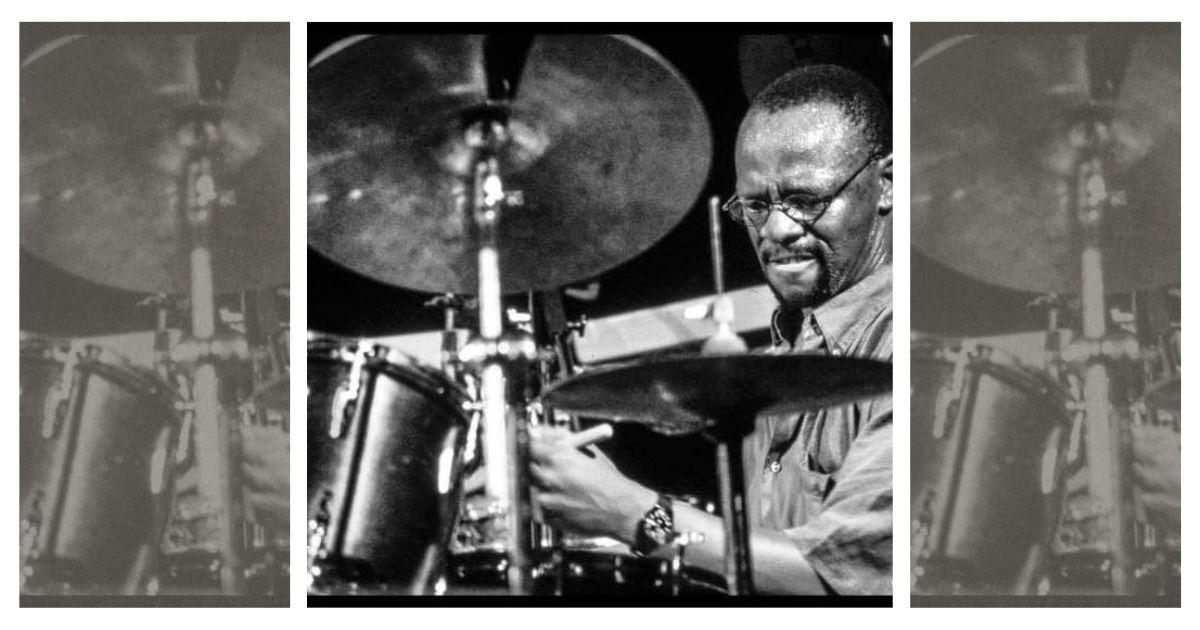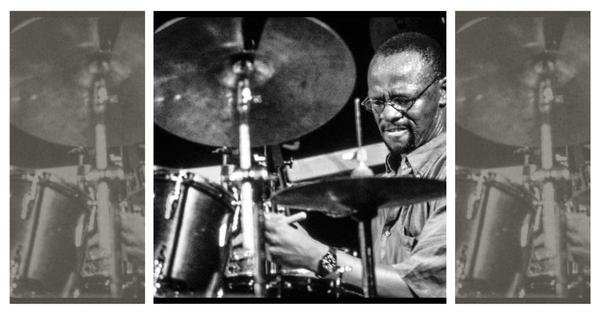Celebrating Morabo Morojele: A Renaissance Man

We often call people with many talents a “Renaissance man.” But Morabo Morojele truly lived up to this term. He was a jazz drummer, novelist, and development scholar from Lesotho. Morojele excelled in many fields and achieved great success in each. Sadly, he passed away on May 20, at the age of 64.
As a researcher of South African jazz, I first saw Morojele perform live. I was amazed by his talent. Later, as a writing teacher, I was struck by the power of his first novel.
Celebrating Morojele’s life is important. He was a pan-African polymath who broke the mold in a world of narrow professional boxes. His story is even more significant today as borders increasingly close to “foreigners.”
Morojele was a man who not only played jazz but also wrote about and lived through social and political changes.
Economist Who Loved Jazz
Morabo Morojele was born on September 16, 1960, in Maseru, Lesotho. He attended the Waterford Kamhlaba United World College in Swaziland (now Eswatini). Later, he studied at the London School of Economics.
In London during the early 1980s, Morojele turned his jazz drumming hobby into a professional side gig. The city had a vibrant African music community. Morojele played with respected British peers. He worked with bands led by South African drummer Julian Bahula and Ghanaian saxophonist George Lee. With Lee’s outfit, Dadadi, he recorded “Boogie Highlife Volume 1” in 1985.
After completing his studies, Morojele returned to Lesotho. He founded the small Afro-jazz group Black Market and later the trio Afro-Blue. He also worked with other Basotho music groups. Lesotho provided a less repressive stage than apartheid South Africa.
Morojele moved to Johannesburg in 1995. He reconnected with George Lee, who had also settled there. His drumming skills caught the attention of rising star saxophonist Zim Ngqawana. With bassist Herbie Tsoaeli and pianist Andile Yenana, he became part of Ngqawana’s regular rhythm section.
The three rhythm players developed a close bond. They created a distinctive shared vision, leading to the formation of a trio. Later, they were joined by saxophonist Sydney Mnisi and trumpeter Marcus Wyatt to form the quintet Voice.
Voice was often the resident band at the Bassline, one of Johannesburg’s most important post-liberation jazz clubs. Founded in 1994, the venue provided a stage for a new generation of indigenous jazz and pan-African music. Voice was an important part of that identity.
Morojele also recorded with South African jazz stars like Bheki Mseleku and McCoy Mrubata. He performed with many others, from Abdullah Ibrahim to Feya Faku.
His drumming had a tight, disciplined, almost classical swing. It was punctuated by kinetic energy and hoarse, breathy vocalizations. Voice playing partner Marcus Wyatt recalls:
“The first time I played with you, I remember being really freaked out by those vocal sound effects coming from the drum kit behind me. But the heaviness of your swing far outweighed the heaviness of the grunting. That heavy swing was in everything you did – the way you spoke, the way you loved, the way you drank, the way you wrote, the way you lived your life.”
Wyatt also remembers Morojele’s gentle, humble approach to making music. It was spiced with sharp, honest opinions and intense, intellectual after-show conversations about much more than music.
Morojele never abandoned his other life as a development scholar and consultant. He traveled extensively and engaged with the injustices and inequalities of the world. Between these two vocations, a third was emerging: that of a writer.
The Accidental Writer
Morojele said in an interview:
“I came to writing almost by accident … I’ve always enjoyed writing, but I never grew up thinking I was going to be a writer.”
In 2006, after several false starts, he produced a manuscript that simply “wrote itself.”
“How We Buried Puso” starts with preparations for a brother’s funeral. The novel, set in Lesotho, reflects on the diverse personal and societal meanings of liberation. It explores how new meanings for old practices are forged. The book was shortlisted for the 2007 M-Net Literary Award.
Eighteen years passed before Morojele’s second novel, “The Three Egg Dilemma,” was published in 2023. By then, he had settled again in Lesotho. Music was less of a viable income source, and development work filled his time. He said:
“I suppose I forgot I was a writer.”
But, in the end, that book “also wrote itself, because I didn’t have an outline … it just became what it is almost by accident.”
In 2022, a serious health emergency struck. Morojele was transported to South Africa for urgent surgery.
“The Three Egg Dilemma” unfolds against an unnamed near-future landscape that could be Lesotho. The setting could be any nation overtaken by the enforced isolation of a pandemic or the dislocation of civil war and military dictatorship. It forces individuals to rethink and remake themselves. The story is complicated by the intervention of a malign ghost, a motif Morojele said had been in his mind for a decade.
For this powerful second novel, Morojele was the joint winner of the University of Johannesburg Prize for South African writing in English. At the time of his death, he was working on his third fiction project, a collection of short stories.
Beauty of His Work Lives On
Morojele’s creative career was remarkable. What united his three identities—musician, development worker, and writer—was his conscious, committed pan-Africanism. He was a master craftsman with sound: the sound of his drums and the sound of his words as they rose off the page.
Through his books and his recordings, that beauty lives with us still. Robala ka khotso (Sleep in peace).
Gwen Ansell is Associate of the Gordon Institute for Business Science, University of Pretoria.
This article was first published on The Conversation.



